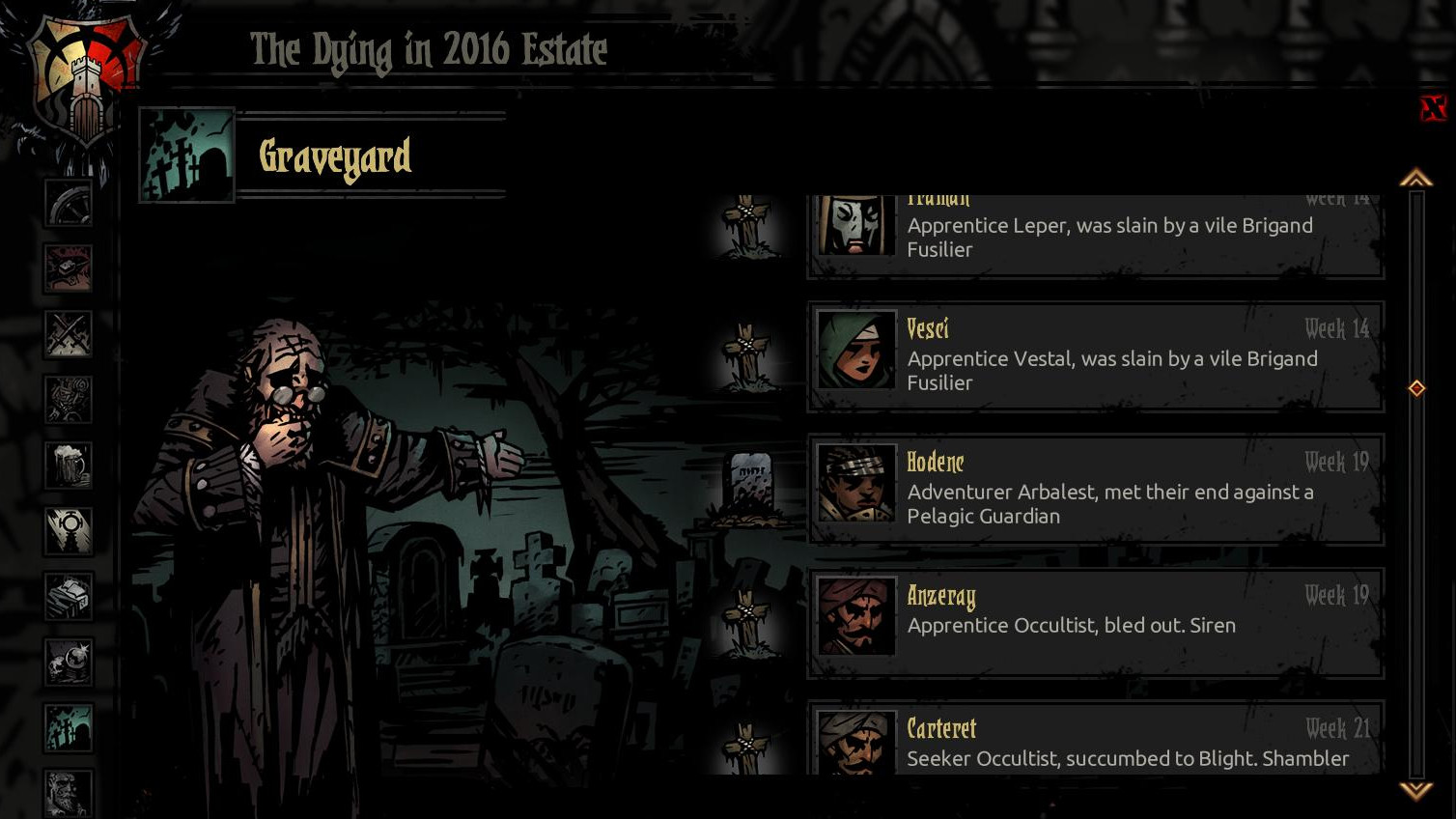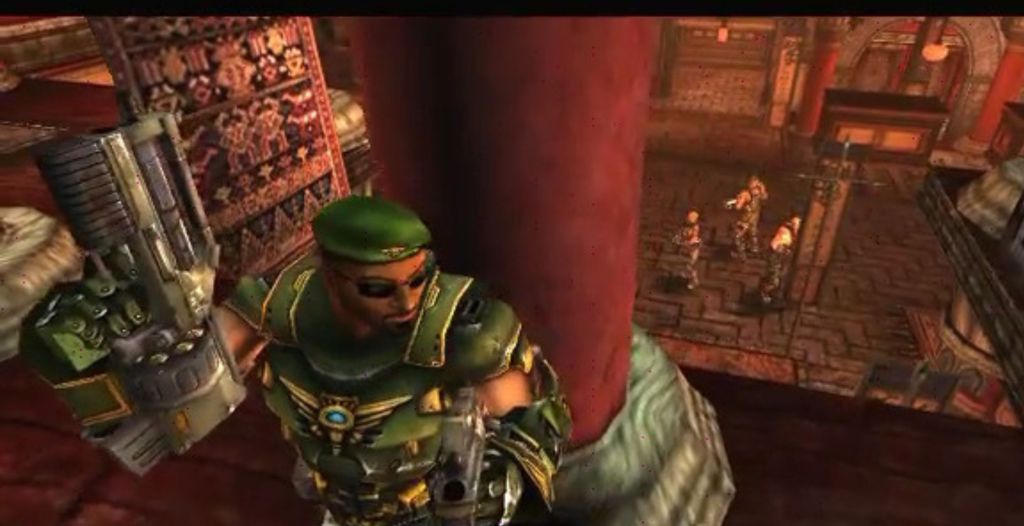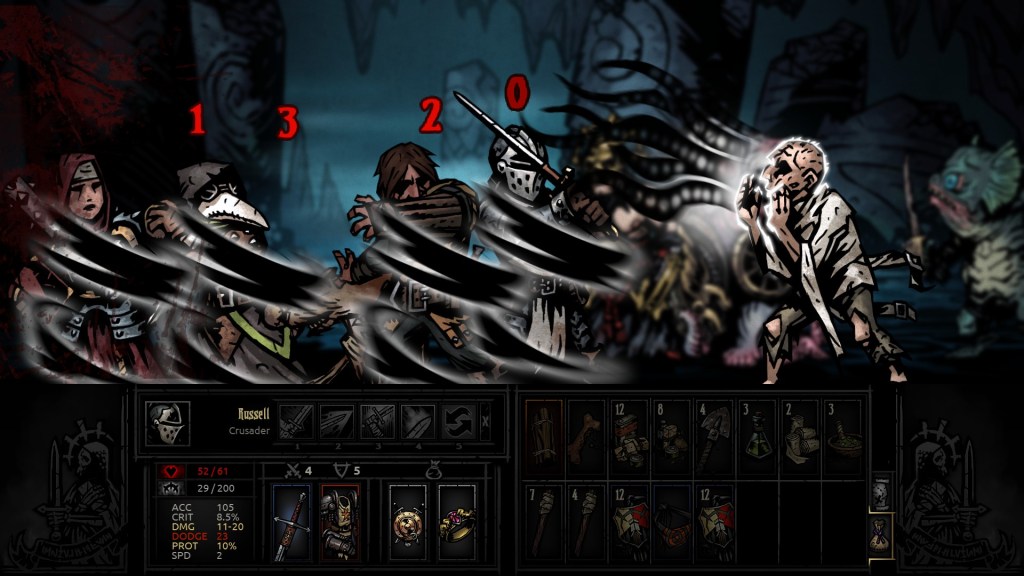So the other day I’m dusting-off my Darkest Dungeon save (aptly if optimistically called the Dying in 2016 Estate) and having such a great time that I’m starting to wonder why I ever stopped playing it in the first place.
I’d had a few white-knuckle dungeon delves, but overall my adventurers had achieved a work-life balance that I can only describe as enviable. They worked hard, but even moderate stress was compensated with extensive downtime and stress-relief. I was running the Silicon Valley startup of dungeoneering expeditions: “We’re serious about our work, but we also believe that work should be fun!”
Videos by VICE
Some context: Darkest Dungeon is kind of a dungeon-themed management sim where, on any given mission, you send four adventurers to battle various fantasy-horror enemies in a variety of spooky settings. Four is the important number here. You’ll have four party members on your side, and the most you’ll fight is four enemies on the other side. When you pick your squad, you need to think about how those four pieces will fit together, because Darkest Dungeon doesn’t really allow you the luxury of redundancy. If your party features two strong healers, there’s a good chance it’s way too light on attack power, for example.
I took a mission to go kill a Siren. It went smoothly: just before the boss encounter, the whole party had max health, and a buff or two. We were ready to kick ass.
Article continues after the video below
But the thing about Sirens—and I can speak authoritatively on this since I watched Kirk Douglas’s Ulysses twice in middle school as part a unit on Classical Greece—is that they bewitch. And that’s exactly what happened. The Siren turned my tank and my best damage-dealer against me, making a manageable fight almost insurmountable. The entire construction of my party fell apart, as the defensive buffs and damage-over-time attacks formed its foundation were turned against me. Casualties started to mount. The 4v1 battle quickly turned into a 2v2, then a 1v3 as the Siren summoned fish-people to its aid.
I had to give-up on getting my front-line fighters back under control and instead spammed a crowd-control attack until the Siren eventually keeled over, probably from mutual embarrassment. Half my party were dead, and the two survivors were both on their last hitpoint.

This happened two days ago and I’m still angry about it. I keep visiting the graveyard in Darkest Dungeon and stare at the epitaphs for two of my veterans. “Killed by Siren.” No, game, they died of bullshit.
I know there’s precedent for these kinds of enemies, and I can’t really even argue that it was somehow unfair or unbalanced. I won the battle in a photo-finish, after all. It’ll probably be one of the few battles I can recall in detail from this entire game. And yet I’m outraged.
I think it’s because “mind-control” abilities piss me off on a primal level. They just break my will in a way few other game mechanics ever do. I don’t think my relationship with X-COM 2 ever fully recovered from the time my ace sniper was turned against my squad. When a game is predicated on these tough choices about composition and abilities, having an enemy show up and shatter that balance always feels like a betrayal, a breach of the social compact. It’s like watching someone unplug your controller to win a game of Mario Kart on the SNES: yes you can defend yourself against that tactic, but is that a direction any of us should want to go?
I’m soldiering onward with Darkest Dungeon, but nursing a profound sense of grievance that probably says more about me than the game.
But what convention of enemy or boss battle design is the one that gets under your skin? What’s is the most likely to make you say, “Screw this,” and go play something else? Let us know in today’s Open Thread!
More
From VICE
-

Screenshot: Atari -

Screenshot: Shaun Cichacki -

Screenshot: Akupara Games -

Screenshot: Six One Indie
